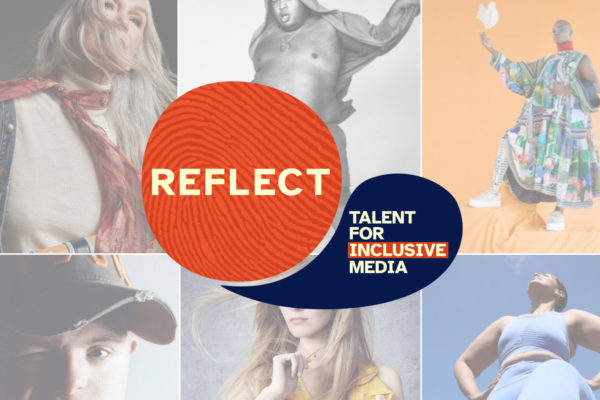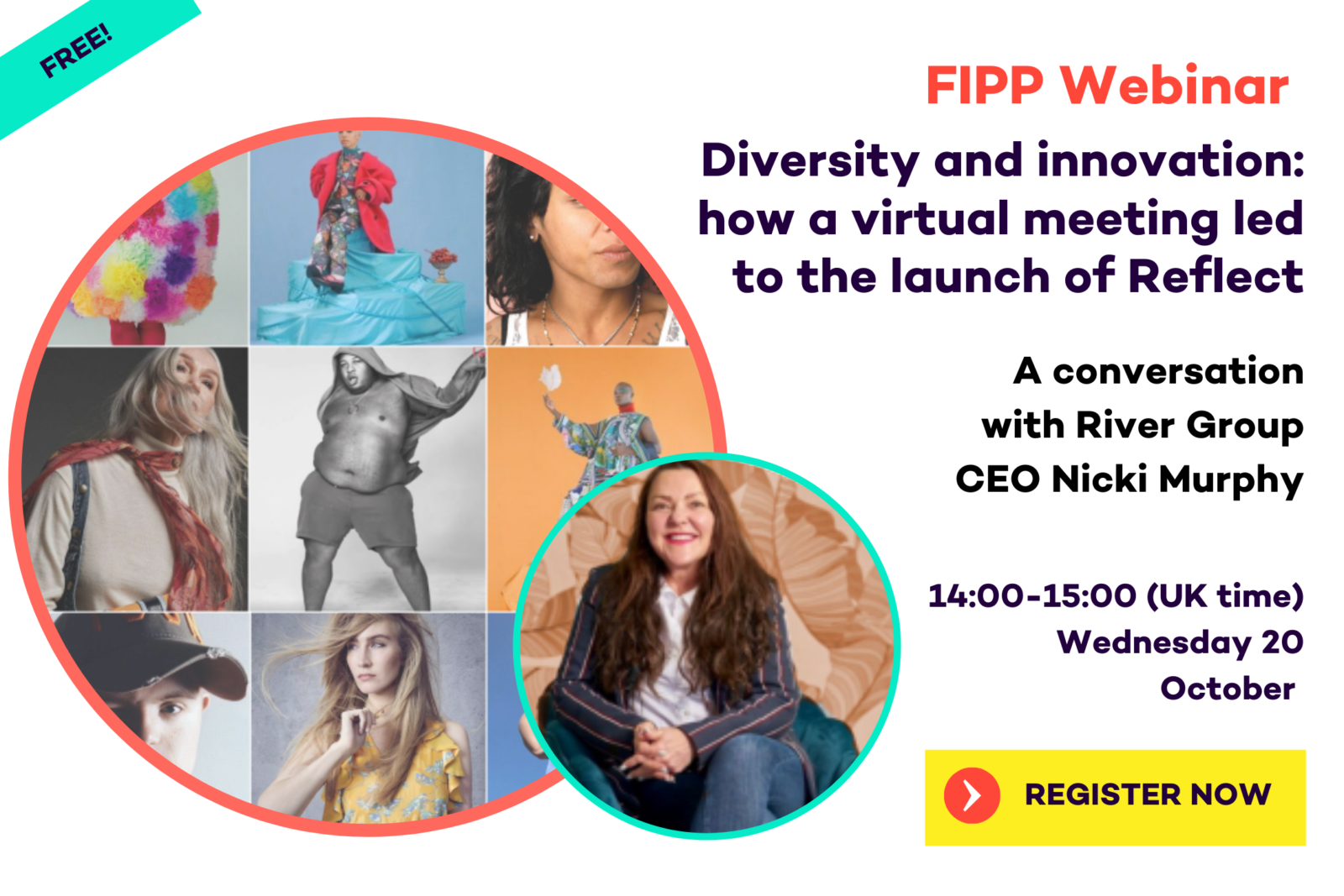River Group CEO on launch of diverse talent management agency
Last month, a new influencer agency launched in the UK. Focussed on diversity and inclusion, Reflect is a brand new non-profit organisation that sits within The River Group of companies, and seeks to champion diverse talent across the industry. We sat down with Nicola Murphy, Group Chief Executive of The River Group, to find out a little bit more about Reflect, how it started, and where the company aims to take its talent – and the industry – over the coming years.
“Reflect was actually born out of an innovation day that we held virtually at River, when Covid was going on,” Murphy begins by telling us. “We’d won quite a lot of new business during Covid and taken on about 50 new people – so we’re about 120 now at River.”
“We took the new people and the people we already had – obviously most of them hadn’t met at that time because they were working remotely – and put them into teams. We asked them to work virtually and think about media and marketing as it stands today, and what was missing. So what could we as a group of agencies sell to clients? But also, what was missing more generally, what gap could we fill?”
“There was quite a lot around diversity and inclusion, and what they ultimately came back with was influencer talent management. So if you are disabled, if you are part of the BAME community, if you are LGBTQ, if you have another kind of difference, then how could you be better represented in media and marketing?”
First founded in 1994 as a contract publishing company, River Group now has a total of four businesses within the umbrella organisation, all focussed around content and communications. There’s River itself, which includes a total of 33 global clients including the likes of A.S. Watson, Holland & Barrett, and The Co-op, a specialist Health & Wellbeing PR agency called Maven which was set up in 2019, and a consultancy focussed on organisational transformation and digitisation – as well as content – for membership and third sector, called Fish.
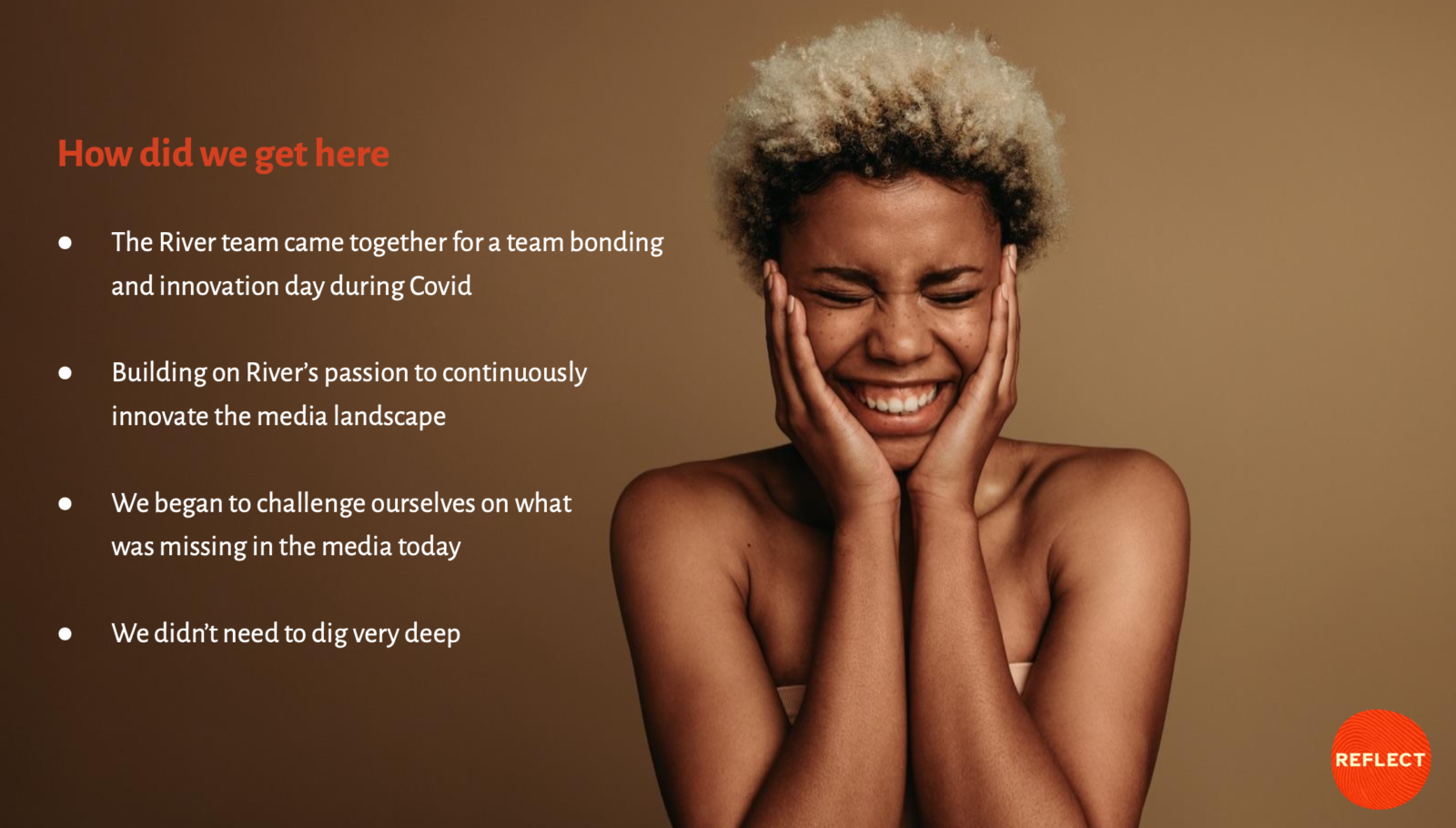
Reflect is the latest addition to the group, and as Murphy highlights, it is an initiative that is currently sorely needed within the industry.
“Reflect is a talent management agency to find budding influencers who are different and diverse. Disability, age, body positivity, facial difference, neuro-diversity, LGBTQ, and everybody in between. And we decided as a group of directors to put a bit of a spin on it. Because there are talent management agencies in the UK that do represent some of those communities, but they have divisions that do it. There isn’t anyone that does it not for profit. So we decided that not only would we set this up as a business, but also that any profits made would go into social mobility.”
As somebody who has been involved in the industry for more than 27 years, Murphy has witnessed first-hand the lack of diversity that both the media and marketing sectors can embody. This is a perspective that she has forged from the point of first starting out in her own career, through years working directly with brands, and even more recently in setting up Reflect.
“We talk about social mobility, but what does that really mean? Well, if you are a South East London kid, who doesn’t have the prospect of going to university – and that was me by the way, but just happened to be clever and pass the Eleven-plus, did end up at university, and fell into media and marketing – then we’re looking for people like that.”
“But we also want to find people in the BAME community, or the LGBTQ community, or disabled people who wouldn’t naturally think that they could be in a media career. We will find those people and sponsor them into learning courses, university places, internships, and hopefully ultimately into jobs. Reflect therefore as an agency, in the longer term, should we hope be staffed by people who are diverse and different.”
“In advertising and content campaigns, which is what we’ve done at River for 27 years, those cohorts of people aren’t represented very well. Often, even the most switched on of businesses think that if they get a nice looking black guy, nice looking white lady, and two multi-racial children in, they’ve ticked the box of gender and diversity inclusion. They haven’t. One in five people is disabled, but one in five people that you see on TV and in magazines is not.”
“And even recently, I sat on a client meeting talking about diversity and inclusion. There were 21 of us there, heads of agencies… and we were asked by the client – very forward thinking client – to talk about diversity and inclusion. Every single one of us, for a start, was white. The majority, me included, were middle-aged. There were six women, out of 21, so gender bias right there. And only one was what you could call different – a guy, middle-aged, white, but happened to be gay. And that was it. And it really struck home to me how crazy it was that we recommend to brands what to put on the TV and how to represent their ethos on social etc., and yet we ourselves are not as inclusive as we should be.”
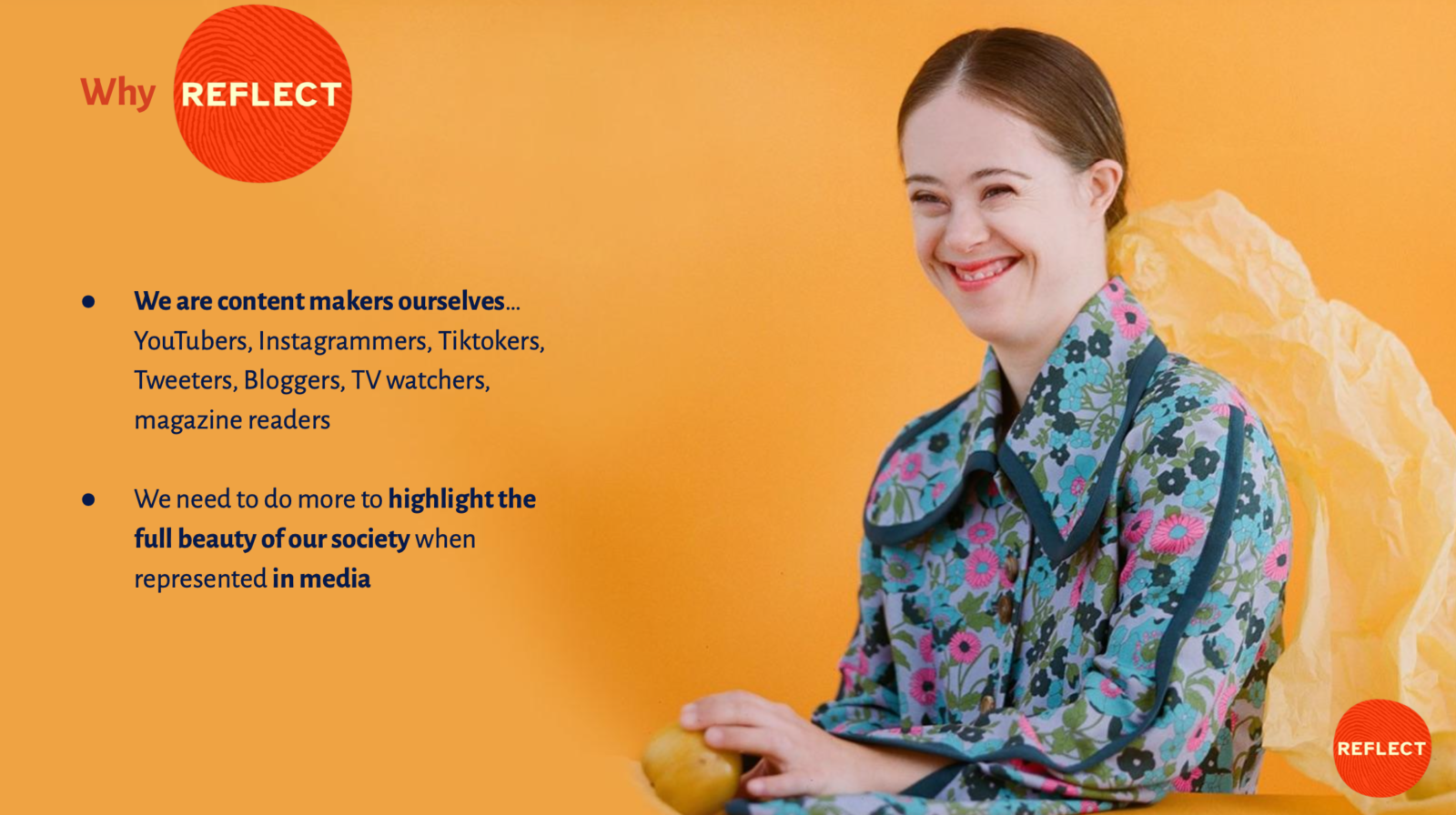
Of course, equal representation is not only beneficial to the faces we see, but also to the brands that use them. We spoke to the BBC 5050 Project earlier this year about the importance of providing a true reflection of society when reporting on news and current affairs. For brands looking to appeal to the widest possible audience, this is crucial.
“51% of Gen Z want to see society reflected back at them, and feel that it isn’t,” says Murphy. “And they want brands and businesses to take responsibility, in a non-tokenistic way, when they’re selling goods and services to them. So I think it’s hugely important to businesses. One, is that they should care. And two, they should put their money where their mouth is and make their campaign more inclusive.”
As part of its structure, Reflect has a shadow board made up of six people, who each volunteer their time to help advise on the future steering of the agency. One of these board members is Katie Piper, a Writer, Presenter, and Model, who also heads up the Katie Piper Foundation. But as Nicola points out, the star’s high profile does not exempt her from ignorance amongst audiences.
“At the weekend, I was on social media, and I noted that Katie had been on TV – on a news programme. Now clearly, she has had her face reconstructed because she was the victim of an acid attack. And some idiot, on Twitter, had written ‘you’ve got so much botox on your lips, you should be ashamed.’ This is 2021, so you know what I mean, it’s mindless bullying because somebody looks different.”
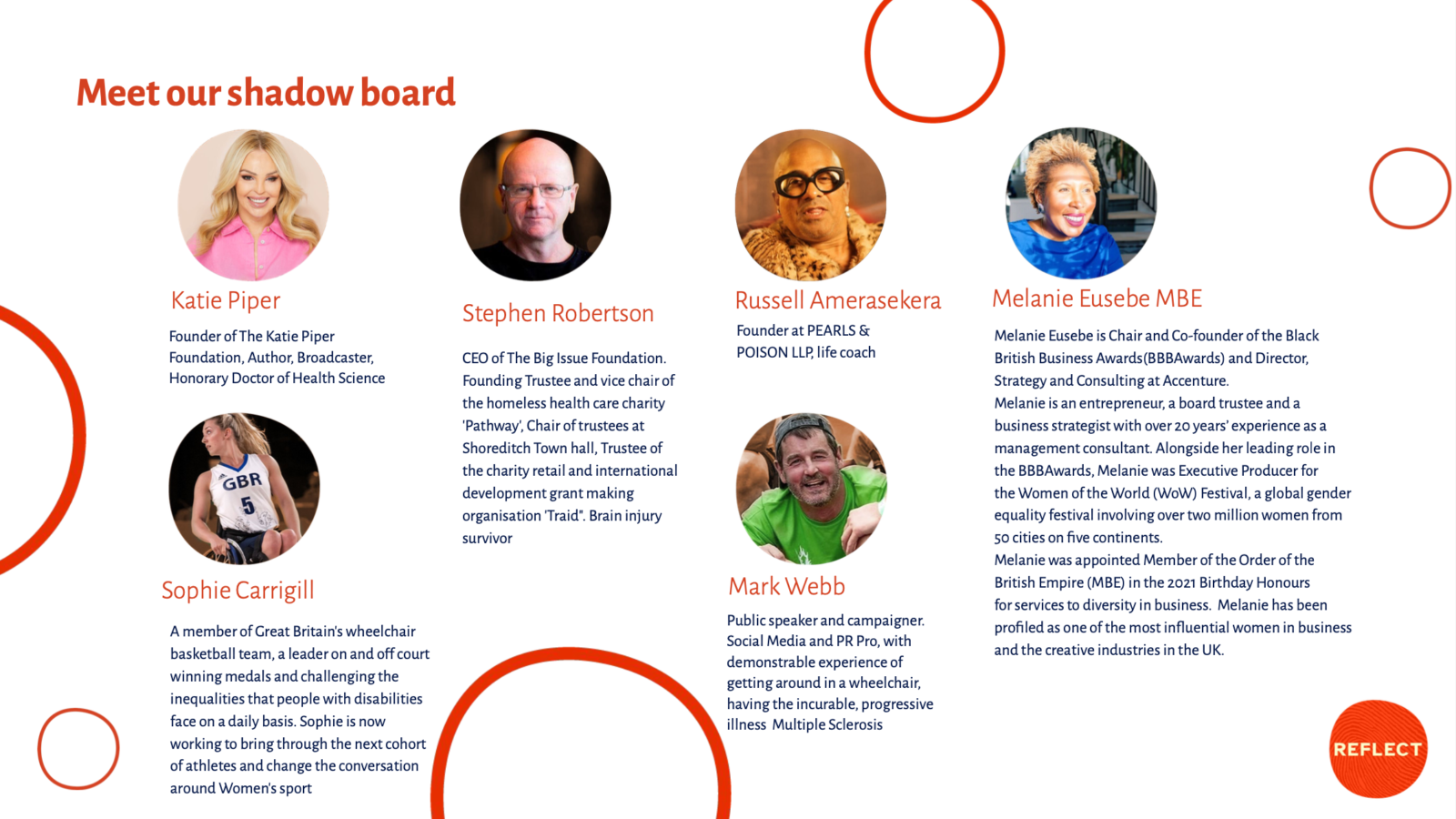
This raises an interesting aside, which I put to Nicola. As somebody who is responsible for leveraging social channels on behalf of brands to grow awareness and response, and therefore recognises the good that these channels can bring when used correctly, how does she feel about the current state of play in the social-sphere?
“Wouldn’t it be amazing, if you didn’t get hate crime, or even terrorism on social media platforms. I think that Facebook and others have a huge responsibility to close down online bullying, and they haven’t. And I think that’s terrible. But equally, brands and businesses want to be on Instagram, they want to be on Facebook, because they want to sell stuff. And people want to be there as well, because they’ve got their own personal brand and want to be4 connected.”
Ultimately, Reflect represents a tangible step forward in the UK industry, influencing change not only from a policy and best practice pov, but in creating a direct impact on the ground. It’s also an aspiration that the work undertaken by the agency will deliver advancement not only for those working in-front of the camera, but in wider areas of the industry as well.
“The hope is that Reflect will make inclusive media, but the people that are behind it that are doing the writing, making the videos, doing the food styling, etc. are also from those communities. So I don’t want to start singing Hakuna Matata, but it should be a virtuous circle. If you are a brand or a business, or you’re in that space, if you’re a recruiter or a charity please come and talk to us, because we can’t do it on our own. And it’s important. It needs to change. One in five people is disabled, on in five people on the telly aren’t disabled – that’s not right.”

